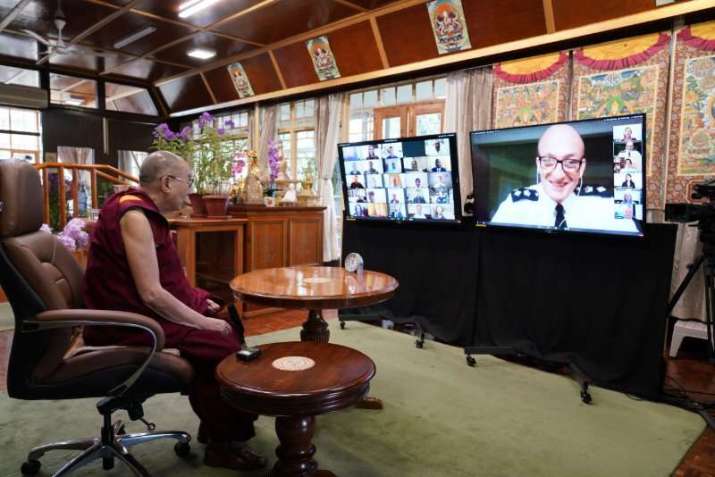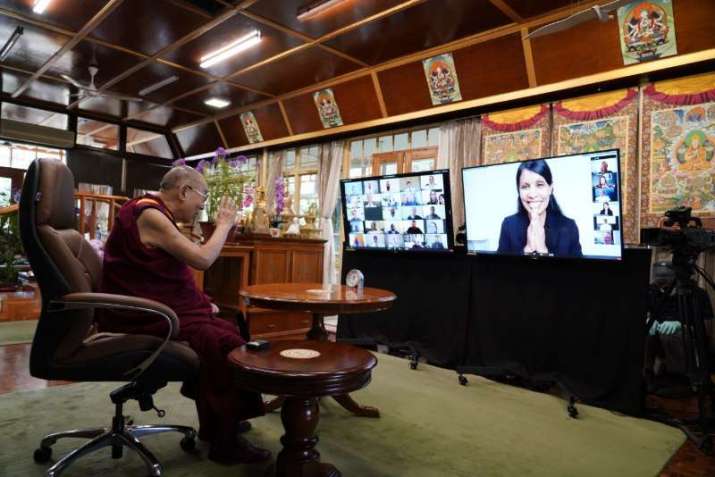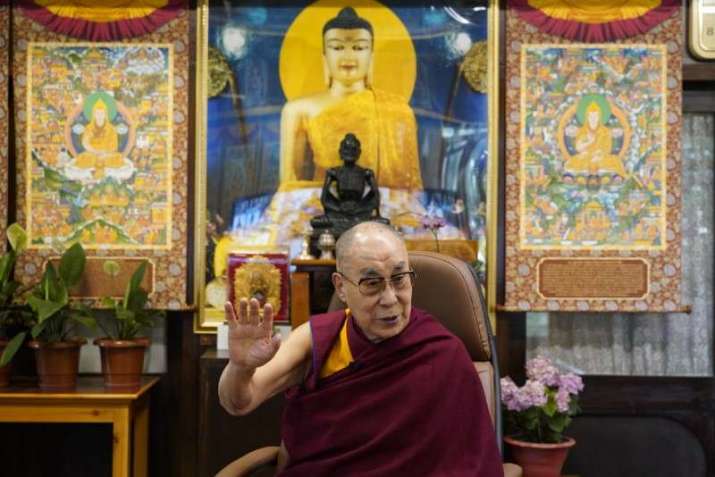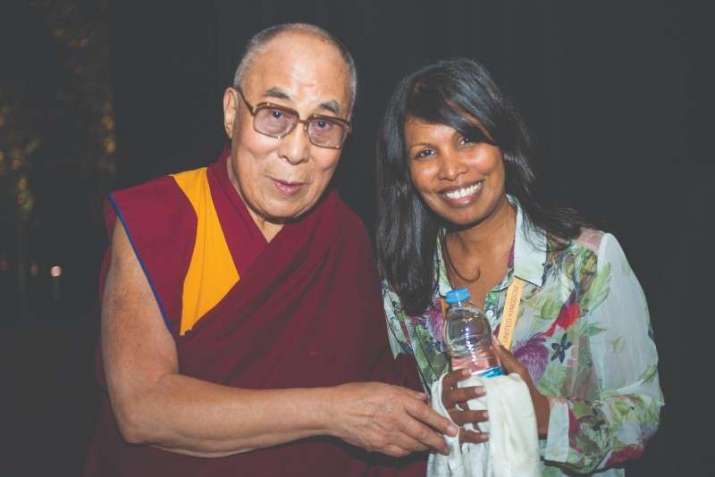
From his residence in Thekchen Chöling, Dharamsala, India, His Holiness the Dalai Lama last week engaged in a dialogue with nearly 1,000 police officers in the United Kingdom. The dialogue, which took place online on 8 July, was held with members of the London Metropolitan Police under the theme “Developing Compassion During Uncertain Times.”
The event was co-organized by Dr. Kumanga Andrahennadi of the Centre for Advanced Learning of Mindfulness (CALM) in partnership with the London Metropolitan Police. The idea for the dialogue arose after a four-week mindfulness workshop for more than 100 UK police officers earlier this year led by Dr. Andrahennadi.

Dr. Andrahennadi began the dialogue with an introduction, followed by a question to the Dalai Lama: “Your Holiness, I use the Buddhist framework of mindfulness meditation techniques to teach meditation. My question is, could you please recommend a particular meditation practice or practices that could benefit the police officers in terms of handling the high-pressure job and their daily work as police officers?”
The Dalai Lama replied by suggesting some Buddhist meditation practices for the officers, adding: “The mind appears like a mirror in which thoughts arise like reflections [themselves] that are pure. So, try to sit on it, try to remain and focus on it gradually, to begin with, for a few seconds, then a few minutes, a few hours. . . . If you develop some concentration, it stills the mind and improves its power. . . . These practices, although [they] originate from religious texts, we should use these as a part of our education, our knowledge, and then simply try to increase mental peace and improve physical health. [In] this way you can apply that effectively by engaging in analysis in a purely secular context.”

During the discussion, the Dalai Lama told the police officers that “it’s because we have neglected our inner world and an idea of inner peace that we now see a crisis in society.” He continued: “And you need to have a sense of compassion for those who are causing trouble. If there is no other way to restrain the violent, you may have to adopt tough measures, but not at the cost of losing your own peace of mind. Sometimes people think of compassion as a sign of weakness. I consider it a sign of strength.”
Responding to a question about the particularly sad scenes that many police encounter in their work, the Dalai Lama responded: “You mustn’t let the sight of violence make you demoralized. You have to be determined to bring about change. Destructive emotions are a result of ignorance, but with determination it can be overcome.” (The Office of His Holiness the Dalai Lama)
Police work, especially in the United States but also around much of the world, has come under increased scrutiny after the killing of George Floyd in Minneapolis, as well as a number of other high-profile deaths in the US. In the UK, police work was already seen as particularly demanding in nature. Police surveys have shown that more than half of UK officers have used sick leave for mental health reasons in the past five years and that nearly 70 per cent of officers who have sought to leave the force claimed that it was due to “impact of the job on health and wellbeing.”
Officers who took the four-week workshop earlier in the year noted positive results. One stated: “I must admit I was a skeptic of mindfulness prior to undertaking this program. This was due to the way it has been portrayed. I will continue to practice often and add it to my toolbox.” Another officer added: “I was very anxious before the session, but feel I am now learning new tools to be aware negative feelings exist, accept these feelings and find compassion for others and myself.”

Dr. Andrahennadi is originally from Sri Lanka but has spent some 19 years living and studying in the UK. She is due to run another eight-week mindfulness program for UK Police Officers from 15 July–2 September. Dr. Andrahennadi developed her mindfulness program through PhD research at the University of Dundee, which integrates original Eastern Buddhist techniques and approaches with Western mindfulness techniques.
The Dalai Lama, a leading global advocate for developing a more compassionate society, has worked frequently with Western scientists, psychologists, and contemplative teachers to both spread Buddhist wisdom beyond people who are active practitioners of Buddhism and to learn from outside of the Buddhist tradition in order to reinvigorate it and ensure its lasting relevance in a quickly changing world. After several months of canceled events due to the COVID-19 pandemic, the Dalai Lama—who turned 85 this month—has developed a regular schedule of teachings, meetings, and dialogues through two large screens from his residence in India.
See more
A Conversation with Members of the Metropolitan Police (The Office of His Holiness the Dalai Lama)
Centre for Advanced Learning of Mindfulness












